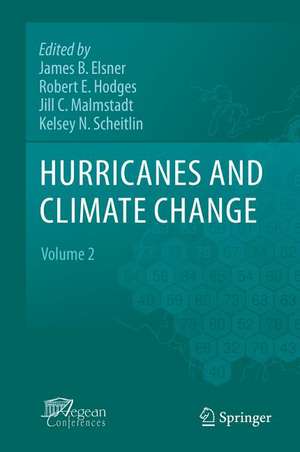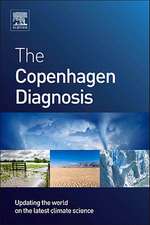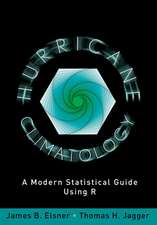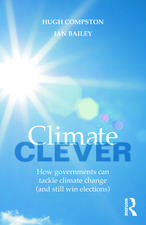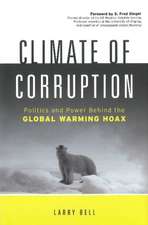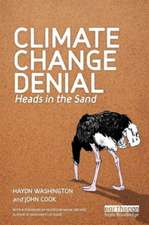Hurricanes and Climate Change: Volume 2
Editat de James B. Elsner, Robert E. Hodges, Jill C. Malmstadt, Kelsey N. Scheitlinen Limba Engleză Hardback – 5 sep 2010
| Toate formatele și edițiile | Preț | Express |
|---|---|---|
| Paperback (1) | 638.76 lei 6-8 săpt. | |
| SPRINGER NETHERLANDS – 13 dec 2014 | 638.76 lei 6-8 săpt. | |
| Hardback (1) | 642.51 lei 6-8 săpt. | |
| SPRINGER NETHERLANDS – 5 sep 2010 | 642.51 lei 6-8 săpt. |
Preț: 642.51 lei
Preț vechi: 755.88 lei
-15% Nou
Puncte Express: 964
Preț estimativ în valută:
122.96€ • 128.21$ • 102.19£
122.96€ • 128.21$ • 102.19£
Carte tipărită la comandă
Livrare economică 20 martie-03 aprilie
Preluare comenzi: 021 569.72.76
Specificații
ISBN-13: 9789048195091
ISBN-10: 9048195098
Pagini: 250
Ilustrații: VIII, 255 p.
Dimensiuni: 155 x 235 x 18 mm
Greutate: 0.48 kg
Ediția:2010
Editura: SPRINGER NETHERLANDS
Colecția Springer
Locul publicării:Dordrecht, Netherlands
ISBN-10: 9048195098
Pagini: 250
Ilustrații: VIII, 255 p.
Dimensiuni: 155 x 235 x 18 mm
Greutate: 0.48 kg
Ediția:2010
Editura: SPRINGER NETHERLANDS
Colecția Springer
Locul publicării:Dordrecht, Netherlands
Public țintă
GraduateCuprins
The Tropical Cyclone Climate Model Intercomparison Project.- Change of Tropical Cyclone and Seasonal Climate State in a Global Warming Experiment with a Global Cloud-System-Resolving Model.- Role of the SST Anomaly Structures in Response of Cyclogenesis to Global Warming.- Tropical Cyclone Rainfall in the Observations, Reanalysis and ARPEGE Simulations in the North Atlantic Basin.- Tropical Cyclones as a Critical Phenomenon.- Environmental Signals in Property Damage Losses from Hurricanes.- A Statistical Analysis of the Frequency of United States and Eastern North Pacific Hurricanes Related to Solar Activity.- Regional Typhoon Activity as Revealed by Track Patterns and Climate Change.- Climatic Features and Their Relationship with Tropical Cyclones Over the Intra-Americas Seas.- On the Increasing Intensity of the Strongest Atlantic Hurricanes.- Frequency and Intensity of Hurricanes Within Florida’s Threat Zone.- Linking Tropical Cyclone Number Over the Western North Pacific with Sea Surface Temperatures.- A Track-Relative Climatology of Eglin Air Force Base Hurricanes in a Variable Climate.- Estimating the Impact of Climate Variability on Cumulative Hurricane Destructive Potential Through Data Mining.
Textul de pe ultima copertă
Hurricanes are nature’s most destructive agents. Widespread interest surrounds thepossibility that they might get even more destructive in the future. Policy makers consider ita call for action. Answers about when and by how much hurricanes will change are soughtby financial institutions especially industry. And scientists are challenged by the range andinteractions of the processes involved. This book, arising from the 2nd International Summiton Hurricanes and Climate Change, contains new research on topics related to hurricanesand climate change since the 1st Summit. Chapters are grouped into research studies usingglobal climate models and those taking empirical and statistical approaches. The latterinclude investigations of basin-wide and regional hurricane activity.
Caracteristici
A unique book, drawing on an international community of scholars in the field of hurricane climate science Latest research results on topics related to hurricanes and climate change Intriguing new results on the relationship between solar variability and hurricanes Latest new on how global climate models can be used to project future changes in hurricane activity Includes supplementary material: sn.pub/extras
